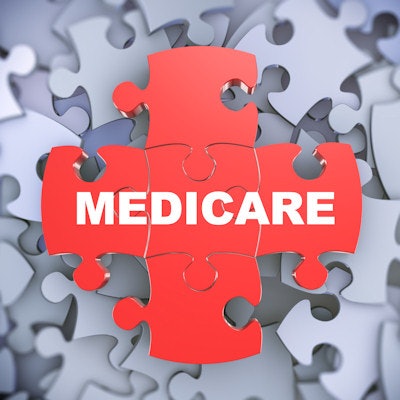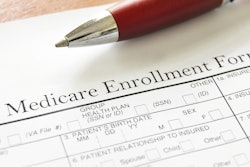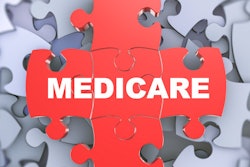
The U.S. Centers for Medicare and Medicaid Services (CMS) released on July 7 a proposed physician fee schedule rule for 2023 that would expand access to healthcare services, including dental care, to Medicare beneficiaries in a move to advance health equity.
The proposed changes for payments under the Calendar Year 2023 Physician Fee Schedule rule and other Medicare Part B issues, if approved, would be effective as early as January 1, 2023, and include Medicare paying for dental exams and treatment preceding organ transplants, according to a press release issued by the CMS.
Furthermore, the agency is seeking public comment on what other medical conditions, such as cancer treatment or joint replacement surgeries, warrant coverage under the U.S. healthcare program for dental services.
Currently, Medicare Part B only pays for dental services when it is deemed medically necessary care that is necessary to treat a recipient's primary medical condition. Examples of Medicare-covered dental treatment include tooth extractions completed in preparation for radiation treatment for jaw cancer or jaw reconstruction following an accidental injury, according to the agency.
Additionally, the CMS is seeking feedback on a process to receive public input when additional dental services may be vital to the clinical success of other medical services, as well as potential future payment models for dental and oral health services and other impacted policies. The public comment period closes on September 6.
The CMS' proposal comes a couple of weeks after some lawmakers in the U.S. House of Representatives and the U.S. Senate requested that the agency broaden the definition of medically necessary dental coverage as a way to expand access to Medicare beneficiaries. Lawmakers contend that the agency not only has the regulatory authority to expand coverage, but that if it does, Medicare could save $63.5 million over 10 years.
In their letters to the CMS, legislators wrote that they believe the agency should expand services to "all medically necessary situations," including hospitalizations for conditions that are caused by oral bacteria, such as an infected orthopedic prosthesis. Furthermore, lawmakers wrote that dental service should be considered medically necessary for Medicare recipients with conditions that can be exacerbated by oral bacteria and infection, including cancer, cardiovascular diseases, diabetes, and multiple sclerosis.
If dental coverage is added to Medicare, it will be a major victory for beneficiaries. Currently, 24 million Medicare recipients lack dental coverage. Nonetheless, this would be momentous considering that in 2021 a proposed spending plan that called for adding dental benefits to Medicare Part B collapsed. Organized dentistry, including the ADA, fought the proposal, claiming it didn't serve the needs of dentists or patients.
Beyond dentistry
In addition to potentially covering dental care in 2023, the CMS is proposing expanding access to services, including colorectal cancer screenings, hearing services, and behavioral health services, and extending telehealth services that were temporarily included in the fee schedule during the pandemic for a few more months, according to the agency.
Nevertheless, the proposed physician fee schedule is down from $34.61 in 2022 to $33.08 in 2023. Due to the expiration of the 3% increase in physician fee schedule payments in 2022 that was a requirement in the Protecting Medicare and American Farmers from Sequester Cuts Act, the proposed schedule considers a statutory requirement that the conversion factor remain flat for 2023, according to CMS.



















